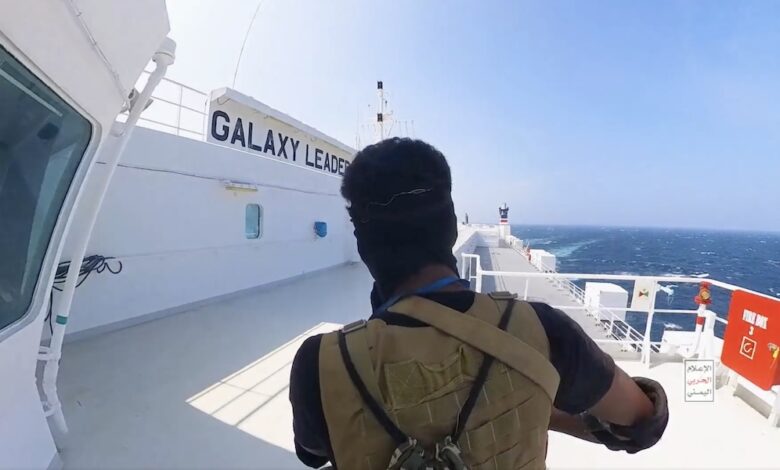A year of too much news

Andrew Craig-Bennett, Splash’s lead columnist, is tasked with summarising the crazy year in maritime in 600 words. He fails. Such a year required a couple of hundred extra words to just scratch the surface.
As the editor said recently, this has not been an ideal year for Splash. We have been almost overwhelmed with news, with one thing coming hard on the heels of the last one at a rate which makes proper investigation and reporting difficult. Nonetheless, I am commanded to summarise the year in shipping.
Starting from the top, the risk of your ship being bombed, mined, shot up or merely boarded by armed men (be they terrorists arriving by helicopter or mere pirates boarding by boat) and taken where they, not you, or your charterers, want her to go, has greatly increased. None of this is good news, but it probably makes us all think more carefully about insurance.
Bulk carriers and tankers had an average sort of year, meaning that despite their owners’ protestations of misery they were no more likely to go bust than farmers are, whilst containerships did much better than we were expecting; the bottom fell out of the insanely high market, but it didn’t fall as far as we had feared. The answer to the question, “When will Mr Aponte start scrapping his three hundred and odd old ladies?” is “Why would he, when he can spoil the entire day of people who have just taken delivery of new ships?”
Consolidation is coming to the tramp sectors, and the effects will be large
Despite which, just about everybody ordered new ships, for delivery at some point, in the distant future, at prices that would make Croesus, who wasn’t a shipowner, think twice. Some, but not, alas, all, of these new ships are equipped with the ability to burn something other than heavy fuel oil, but whether many of them will ever do so is open to doubt.
An increasing number of seafarers will, on the one hand, be able to receive instructions from their wives and girlfriends (“may they never meet”, in the words of the British Royal Navy’s Saturday toast) by way of Mr Musk’s gadget and his constellation of LEO satellites, anywhere on the high seas, but on the other hand this luxury (in the minds of owners) comes at the price of being micro-managed by the office 24/7, through the same apparatus. The IT people remain determined to put all seafarers out of a job, but before they do so they should perhaps apply their minds to making robots better able to wield needle guns, grit blasters, paint brushes, welders, spanners, feeler gauges and workshop tools whilst infallibly locating and fitting every spare part onboard as well as chucking heaving lines accurately.
I’d like to point out a straw in the wind: the merger of Star Bulk and Eagle Bulk is forecast to yield savings of $50m a year. I’ve known Petros Pappas for 40 years and if he says that’s what the saving will be, he will have calculated it, carefully, and he will be right. Which is not good news for people who own, as Mr Pappas did 40 years ago, four ships. Consolidation is coming, at last, to the tramp sectors, and the effects will be large.
Peering ahead into the murk, I predict that politics will get worse, which may be bad news for our species but is usually good news for the freight markets, and that we will all start to get serious about emissions, confronted as we shall all shortly be by the IMO’s CII and as Europe traders shall be by the EU’s ECS. Up to now the driving force behind trying to reduce funnel flue gas emissions from ships has been our customers’ wish to look good in the eyes of their customers, and a quick coat of greenwash is enough to deal with this.
Which is more absurd, do we think – cargo ships sprouting silly little sails (word reaches Splash that one splendid suit of solid toy sails onboard a bulk carrier owned by a particularly eminent company lasted a matter of hours before being blown more or less overboard) accompanied by fine words in press releases about the utterly implausible reductions in emissions that will be achieved, or port operators boasting about their commitment to abolishing diesel powered cargo and container handling equipment in favour of electric stuff whilst doing absolutely nothing about cold ironing because, of course, supplying electric power to run all the ships alongside in a port would involve, for most ports other than the smallest, a new power station and transmission lines, and that costs real money.
Happy 2024. And less news, please. Talking of news, you may perhaps have noticed that the Financial Times has discovered shipping. Be worried. Be very worried. The FT recently carried out a six-month-long investigation into pornography and concluded that that equally globalised industry is actually regulated, quite well, by Visa and Mastercard. What will they say about us?

Great article…but i believe you forgot to mention the crisis in Panama Canal? another obstacle to this busy year…
Dear Shirley,
You are quite right – it was in the draft, but it got missed out on the final cut. There was just too much stuff!
Here we have another Mystery of the Sea – the Panama Canal shuts out a lot of ships – so the Suez Canal, not known for leaving money on the table, cuts its rates?
Merry Christmas!
Andrew